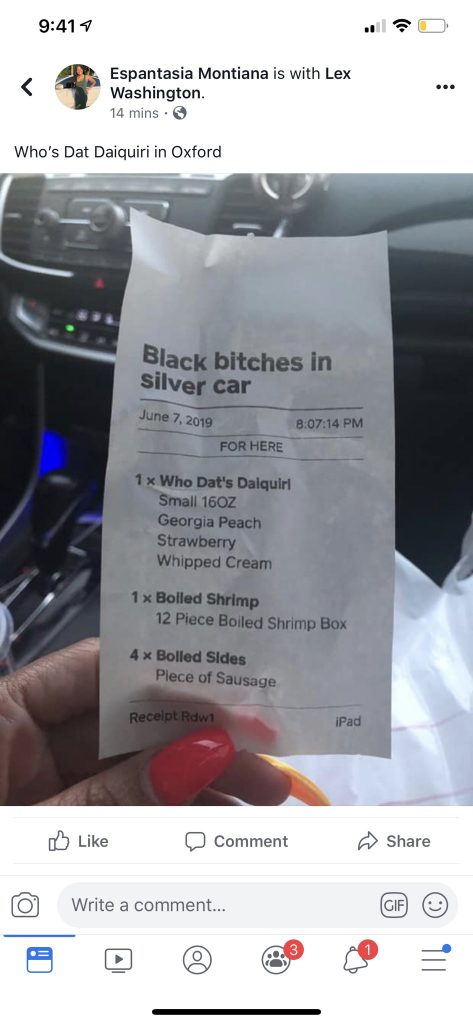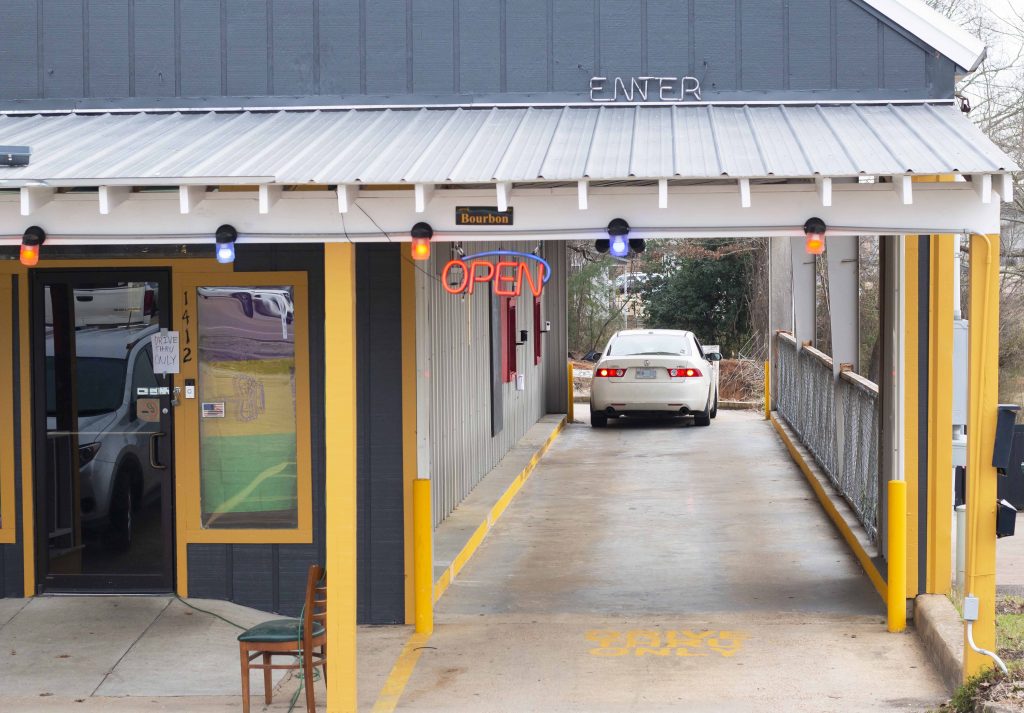An employee at Who Dat’s Drive-Thru has been fired after giving a customer a receipt that contained a racially offensive description.
Alexia Washington, a University of Mississippi student, visited the drive-through daiquiri bar on June 7. After receiving her order, the top of her receipt read “Black bitches in silver car.”
Washington, who goes by Lex Washington on Facebook, posted a photo of her receipt on Monday. Her post, which has since been deleted, said that she waited to post the receipt in an attempt to allow Who Dat’s to do the right thing.

“I seek justice for this hate crime, and I will no longer remain silent,” the post read. “I’ve lived in Oxford for 5 years, and I’m still having to deal with this type of ignorance. I’m not a rude or hateful person. I was not rude when I was at this establishment and was greeted with this kind of service. I will not stand for it.”
The post gained a large amount of negative attention.
“This is terrible customer service, and it should have been reason for immediate termination of the employee who is responsible,” Dr. Ethel Young-Scurlock, interim director of African American Studies, wrote in a Facebook post. “I generally support people having an opportunity to reconcile and retrain, but this is too much, and it makes a large statement about what this business supports and condones in its environment.”
Wylie Coleman, the owner of Who Dat’s Drive-Thru and King’s Steakhouse, said in another Facebook post that has since been deleted that the employee who printed the receipt was fired and banned from the property on Monday.
In a second Facebook post, Coleman said that he and Washington discussed the events that transpired and a broad range of issues and goals for the summer.

Coleman also said that his communication with Washington was cordial and that they agreed to “ban any individuals that feel in any way, they may be allowed to marginalized people to a word or level.”
“We need to turn some stones and we are here to do that,” Coleman’s post read. “From the bottom of my heart, I would like to apologize to the young ladies that were attacked by this injustice. We have a lot of work to do as humans (and) a representative of the community.”
The response to Coleman’s second post was overwhelmingly positive.
“This sounds not only like a sincere apology for what actually happened but a commitment to make sure it never happens again,” Loretta Miles wrote in a comment.






